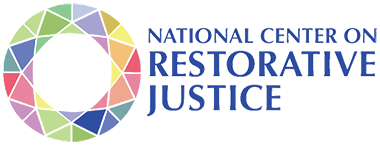Restorative Pedagogy Network

The Restorative Pedagogy Network is an international group established to support and promote the teaching of restorative justice in higher education institutions. It is collaboratively coordinated by the National Center on Restorative Justice, Maynooth University in Ireland, and Vermont Law and Graduate School. The Restorative Pedagogy Network organizes workshops and generates resources to support greater implementation of restorative justice education in universities worldwide and across disciplines. To join the Restorative Pedagogy Network mailing list, please contact Dr. Ian Marder at Maynooth University.
Past Workshop Recordings
Designing Restorative Justice Courses: Incorporating Theory, Research & Skills
Restorative justice is taught in universities worldwide, spanning various departments and disciplines. Professors teaching restorative justice face several decisions when creating their course, such as how much emphasis to place on theoretical, empirical, and skills-based content and learning outcomes. However, there is currently no platform for academics to share their syllabi’s contents and reasoning or consider how to balance and apply theory, research, and skills-based instruction.
This session explores different approaches to designing university courses in restorative justice. It begins with a presentation and discussion of ongoing doctoral research in England and Wales, the first study to empirically examine restorative justice syllabi and teaching methods. Next, three speakers present their courses, with one focused on the theory and philosophy of restorative justice, another on the skills and practice of restorative justice, and the last on the empirical study of its impact and use. Finally, there is a discussion on these topics among all participants.
Participatory and Experiential Learning in Restorative Education
Restorative justice and restorative practices highly value stakeholder participation and group experiences. University instructors teaching these subjects have reasons to integrate participatory and experiential approaches into their courses, beyond the benefits they provide as teaching tools.
This workshop aims to connect educators who teach restorative justice and restorative practices, encouraging them to share and co-create ideas and methods for achieving this goal. It begins with presentations from colleagues in the United States and Canada who use mindfulness and Lego in their teaching, followed by group discussions on these approaches.
In the second part, the organizers lead a discussion on using circles in restorative education. Together with participants, they co-design a brief resource (a slideshow and accompanying video) on how to use circles in university teaching for distribution
Using Circles in Higher Ed. Classrooms
Ian Marder, Lindsey Pointer and Alanna Ojibway share the outcome of a workshop held with the Restorative Pedagogy Network. The workshop explored the use of circle process in university classrooms to build relationships, establish group norms, deepen engagement with class material, and more. Drawing on the core tenets of restorative pedagogy, the presenters share the benefits of using circle practice in the classroom, the basic structure, and guidance for designing circle questions. The presentation is intended to support those working in higher education to use begin or expand use of circles in their classrooms.
